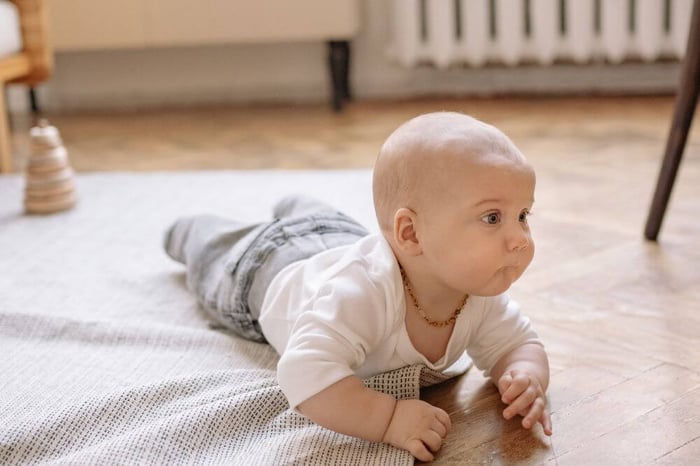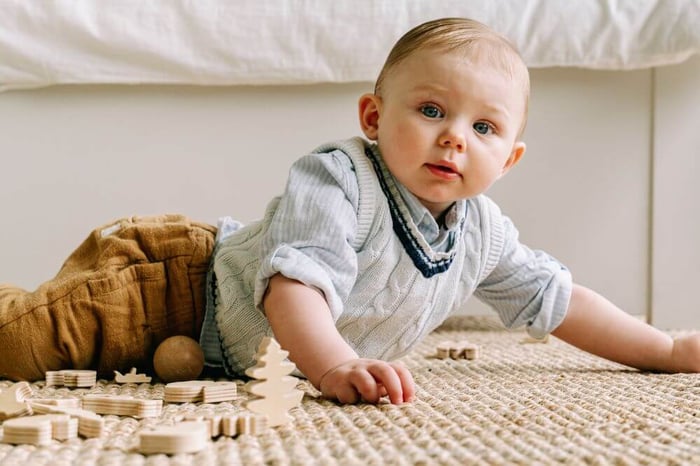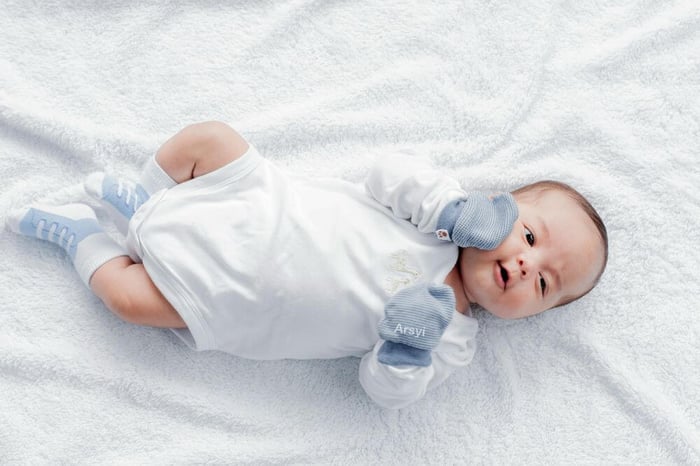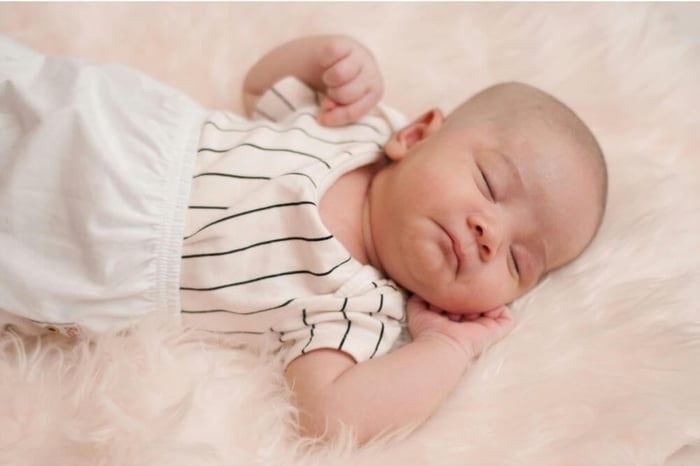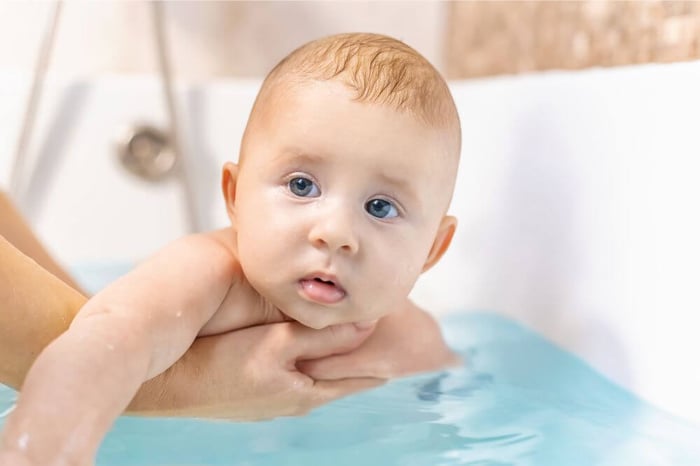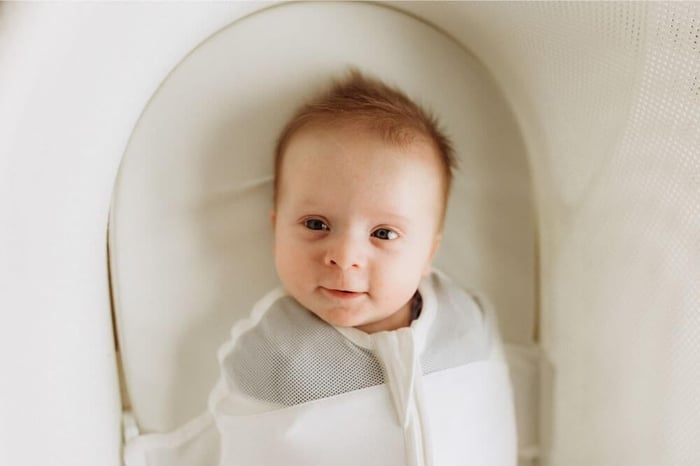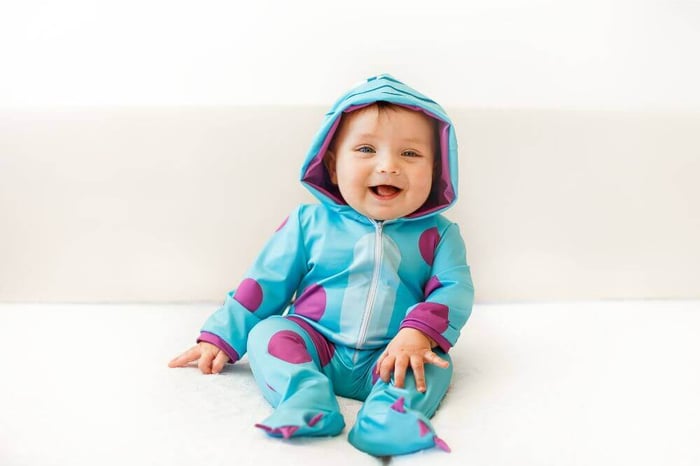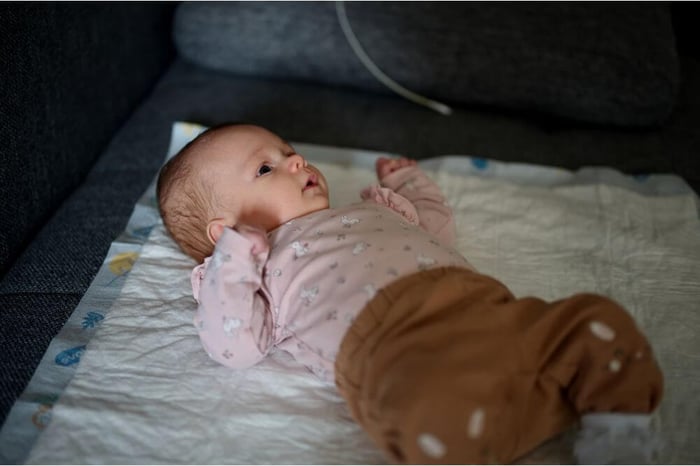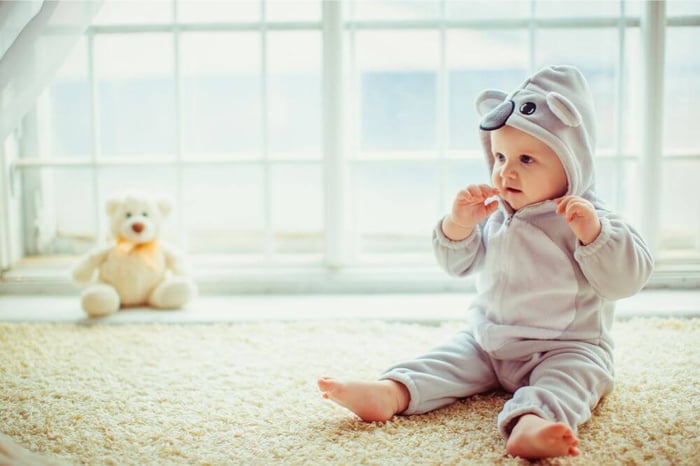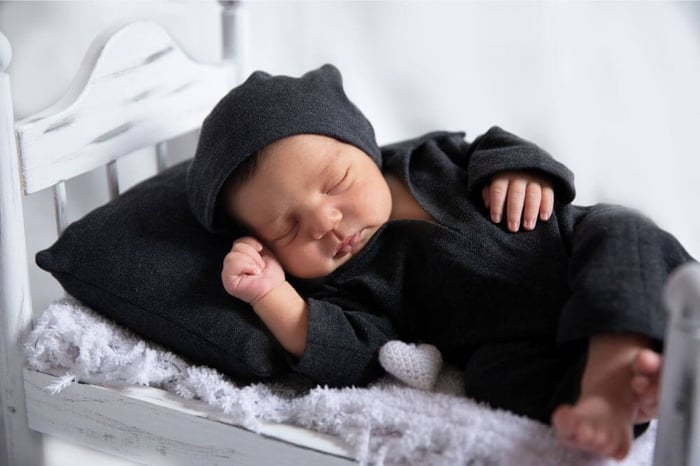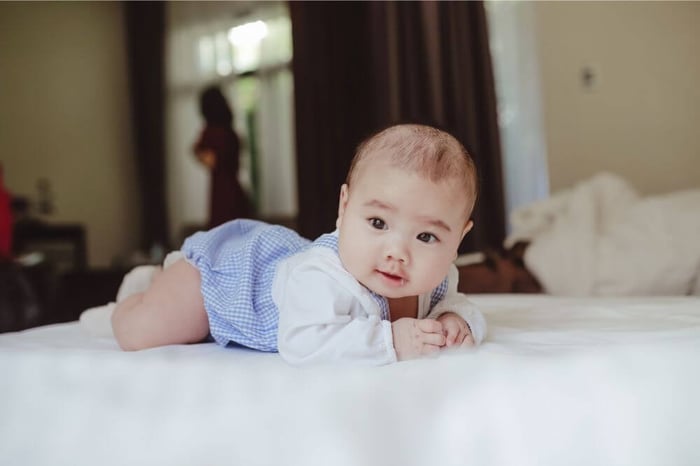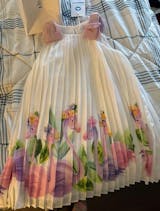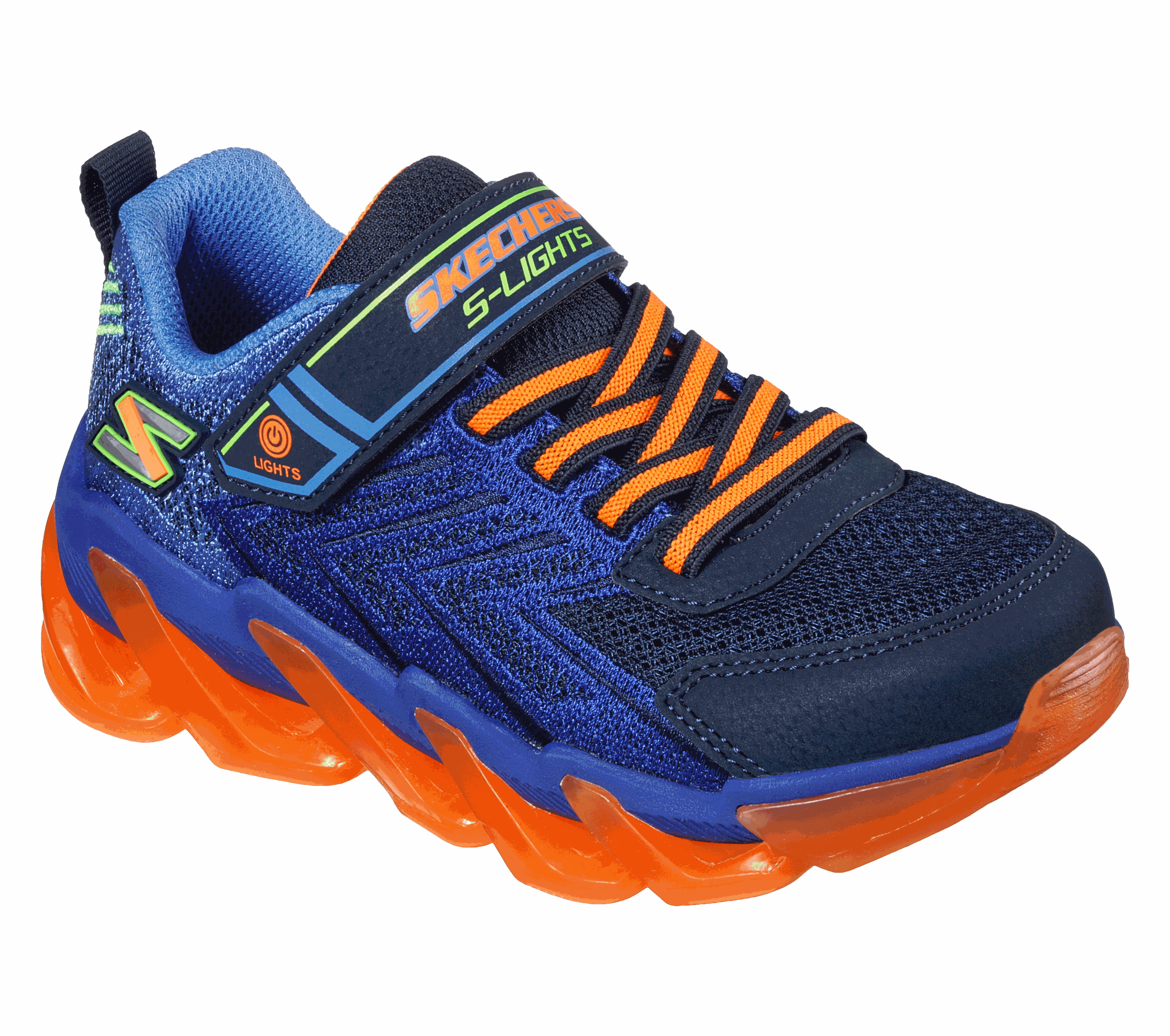What Baby Pajamas Are Best For Sensitive Skin
Having a baby is undoubtedly one of the most significant life changes. However, raising a kid is a tricky thing. How do you decide which meals to buy, which bedding is best, or which detergent to use while washing your child's clothes?
And if your baby has sensitive skin, that will be A LOT difficult as clothes can aggravate your child's sensitive skin.
That’s why one of the most asked questions is what baby pajamas are best for sensitive skin. This blog post will guide you on how to find the perfect baby clothes if your kid has sensitive skin. So, without any delay, let’s get into the topic.
Understanding Baby's Sensitive Skin
Now that we’ve come to discuss what baby pajamas are best for sensitive skin, we must understand sensitive skin first. Sensitive skin refers to more than just being soft and kissable. Did you know a baby's skin barrier doesn't entirely form until they are almost two years old? Before that, their skin is vulnerable to overreactions from chemicals, the environment, and poorly fitting clothing.
Skin irritation can result from friction caused by rough fabric. Itching from that initial irritation exacerbates sensitive skin! According to Ohio Dermatology Centre board-certified dermatologist Dr. Larisa Ravitskiy, MD, "the initial skin issue is just the beginning." Thick skin is itchy, and scratching itchy skin makes it thicker. Thus, you get itchier the more you scratch!
Now that we know what sensitive skin is, let's get to the actual question: What baby pajamas are best for sensitive skin?
Baby Pajamas’ Basics
While assembling your baby garment collection, include multiple sets of baby pajamas suitable for different climates. Keeping a minimum of five sets of pajamas in each size is a MUST.
The ideal pajama style depends on personal preference, which applies to you and your child. Certain parents prefer zip-up, one-piece baby pajamas with either open toes or feet. Some people are okay with two-piece pajama sets, but it's more difficult to dress infants and babies since you have to pull the top over their heads.
[dip_prod_8955626225881]
According to the American Academy of Pediatrics (AAP), you should never put loose blankets, pillows, stuffed animals, or toys in your baby’s sleep space during the first year. Alternatively, you can give your baby an added layer of warmth with a swaddle (until they can roll) or a sleeping bag (just not weighted).
Key Factors to Consider When Choosing Baby Pajamas
When choosing pajamas for a baby with sensitive skin, several factors ensure their comfort and safety:
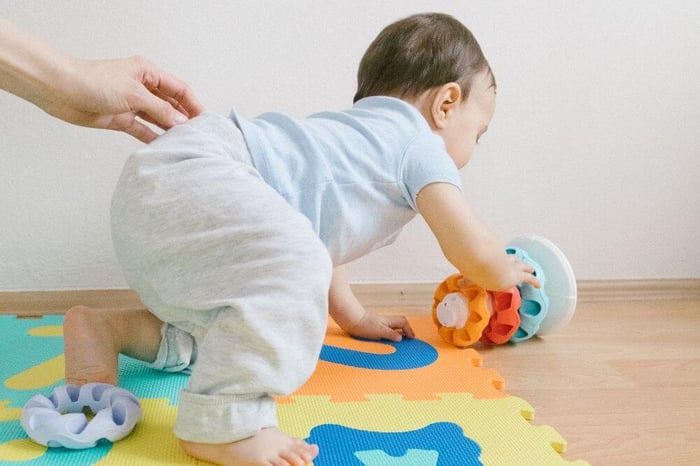
Fabric Material
Opt for natural fabrics like organic cotton, bamboo, or silk. These soft, breathable, and gentle materials are ideal for delicate skin. Organic cotton is particularly popular for its hypoallergenic qualities and durability. Bamboo fabric is another excellent option because it is naturally antibacterial and moisture-wicking, keeping your baby dry and comfortable. Avoid synthetic materials like polyester, which can trap heat and moisture, or wool blends that may cause itchiness.
Hypoallergenic Properties
Look for pajamas labeled hypoallergenic and designed to minimize allergic reactions. Certifications like GOTS (Global Organic Textile Standard) ensure the fabric meets stringent safety and environmental standards.
Breathability
Babies are sensitive to overheating, which can exacerbate skin irritation. Choose breathable fabrics that allow air circulation and wick moisture away, reducing discomfort.
Non-toxic dyes and Chemicals
Harsh dyes and flame-retardant chemicals can irritate sensitive skin. Choose pajamas that use non-toxic, plant-based dyes and are free from chemicals like formaldehyde.
Seams and Tags
Flat seams and tagless designs prevent chafing and irritation. Ensure pajamas fit snugly but are not restrictive, offering freedom of movement without irritating the skin.
Prioritizing these factors helps keep your baby's sensitive skin safe and comfortable.
Top Recommended Pajama Fabric for Sensitive Skin
It's crucial to consider the fabric's quality and implications for your baby's delicate skin while assessing infant pajamas. So here is the answer to what baby pajamas are best for sensitive skin:
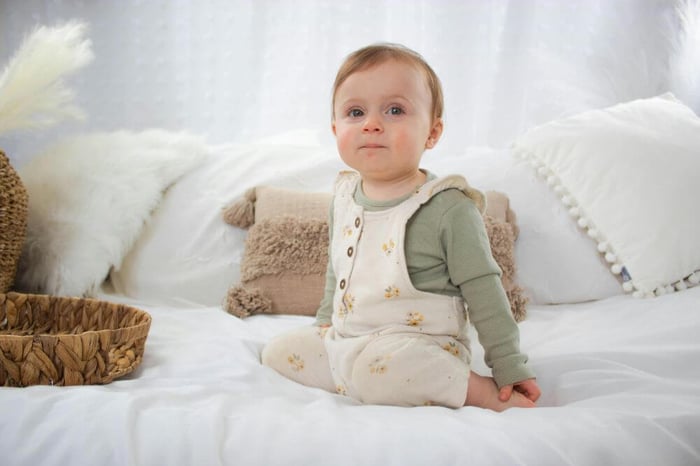
Cotton
The National Eczema Society advises avoiding "cotton blends" in favor of 100% cotton because they may include irritating ingredients.
One of the most breathable materials is cotton, making it perfect for people with sensitive skin. It allows your skin to breathe and is often loose. For sensitive skin, organic cotton—that is, cotton produced and processed without the use of harsh chemicals—is an even better choice because there is no chance of coming into contact with any chemicals that may remain on the fabric's fibres after it has been manufactured and washed.
Cotton's only drawback is that it absorbs moisture, and damp fabric can irritate sensitive skin more than dry fabric. Otherwise, cotton is one of your best options for avoiding irritation.
Microfiber
Although most of us associate microfiber with washcloths and other cleaning supplies, its smooth surface and moisture-wicking properties make it a fantastic option for infants with delicate skin. It reduces the likelihood of skin irritation because it is easy to clean and keeps skin dry in a way cotton cannot equal.
If you can't find microfiber apparel, look into washcloths and bedding made of microfiber. These products can also help maintain the health and absence of irritation of that baby's smooth skin.
Bamboo
Bamboo is one of the softest textiles available. Because bamboo has antibacterial qualities, anyone's skin can benefit from its cleanliness and wellness. Whether your baby has sensitive skin or not, the material is the best option because it is soft and breathable. Plus, bamboo has the added bonus of being an eco-friendly and non-toxic product.
Experts suggest using smooth, soft fabric, such as bamboo viscose, and removing the trigger altogether. The silky texture reduces skin irritation and associated itching while calming the skin.
Silk
Even though the thought of placing a baby in silk may seem horrifying, silk has been researched as a potential treatment for eczema in youngsters and others with sensitive skin. Silk isn't the most economical choice, but it can be an excellent substitute if your baby has issues with other textiles. The fabric's antimicrobial properties help lower the risk of a subsequent skin infection, which can exacerbate sensitive skin conditions.
What Not To Wear If Your Baby Have Sensitive Skin
Knowing what baby pajamas are best for sensitive skin is not enough; you must also know what fabrics to avoid.
Fleece
Although fleece is excellent for providing light warmth, in warmer regions, its high heat-retaining capacity can irritate delicate skin and result in heat rash. If you wear fleece on your baby, ensure it's lightweight and only used for exterior layers so it can be taken off quickly if it bothers their skin.
Wool
Many parents in colder locations choose wool, but it may be messy and unpleasant for sensitive skin. Although wool is a natural fabric made from sheep, even people without sensitive skin may experience itching and irritation from its coarse fibers. If wearing a wool jumper makes you want to scratch your skin, think about your baby, too.
Polyester
Because it's inexpensive and simple to make, polyester is likely one of the most popular materials used in baby and toddler clothing. Still, it's also among the worst for your baby's skin. In addition to tending to irritate skin, the synthetic polymers used to make the fabric may contain hazardous substances.
Due to its flammability, polyester frequently incorporates flame-retardant chemicals. You should avoid using this fabric on babies, who chew on their clothing just as much as they wear it.
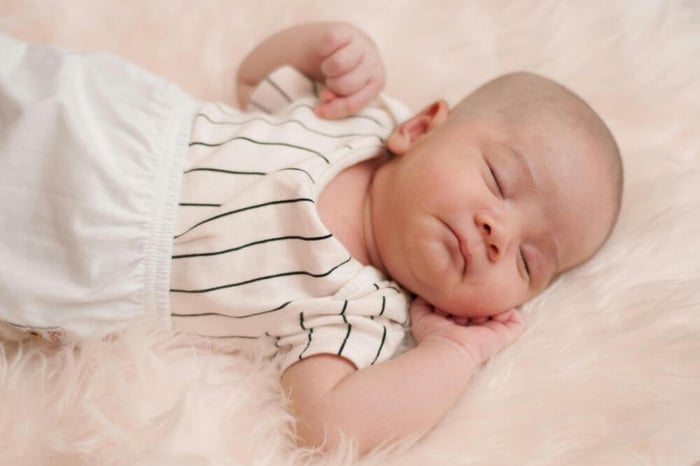
Care Tips for Baby Pajamas
Proper care is essential for maintaining the softness and safety of baby pajamas, especially for sensitive skin.
Always pre-wash pajamas before the first use to remove any residues from manufacturing.
Use gentle, fragrance-free, and hypoallergenic detergents to avoid irritation. Avoid fabric softeners, as they may contain harsh chemicals.
Dry pajamas on a low heat or air dry to preserve fabric quality.
Store clean pajamas in a dry, dust-free environment to minimize exposure to allergens.
Conclusion
That is everything you need to know about what baby pajamas are best for sensitive skin. If your baby has sensitive skin, use soft fabrics like cotton, bamboo, or skin because they don’t irritate. Ensure you don’t wear fleece or wool because their microfibers cause itching.
Jennikidz offers a variety of baby clothes from different brands. Explore the shop and get an extra 3% discount on all purchases.
FAQs
What fabrics are best for babies with sensitive skin?
Natural fabrics like organic cotton and bamboo are ideal for sensitive skin. They are soft, breathable, and free from harsh chemicals, reducing the risk of irritation or rashes.
How can I tell if my baby’s pajamas are causing skin irritation?
Signs of irritation include redness, rashes, or dry, flaky patches on your baby’s skin. If these symptoms appear shortly after wearing certain pajamas, the material or dyes may be the cause.
Are organic pajamas worth the extra cost?
Yes, organic pajamas are often worth the investment. They are made without harmful chemicals, making them safer for sensitive skin and more durable, ensuring long-term comfort and use.

